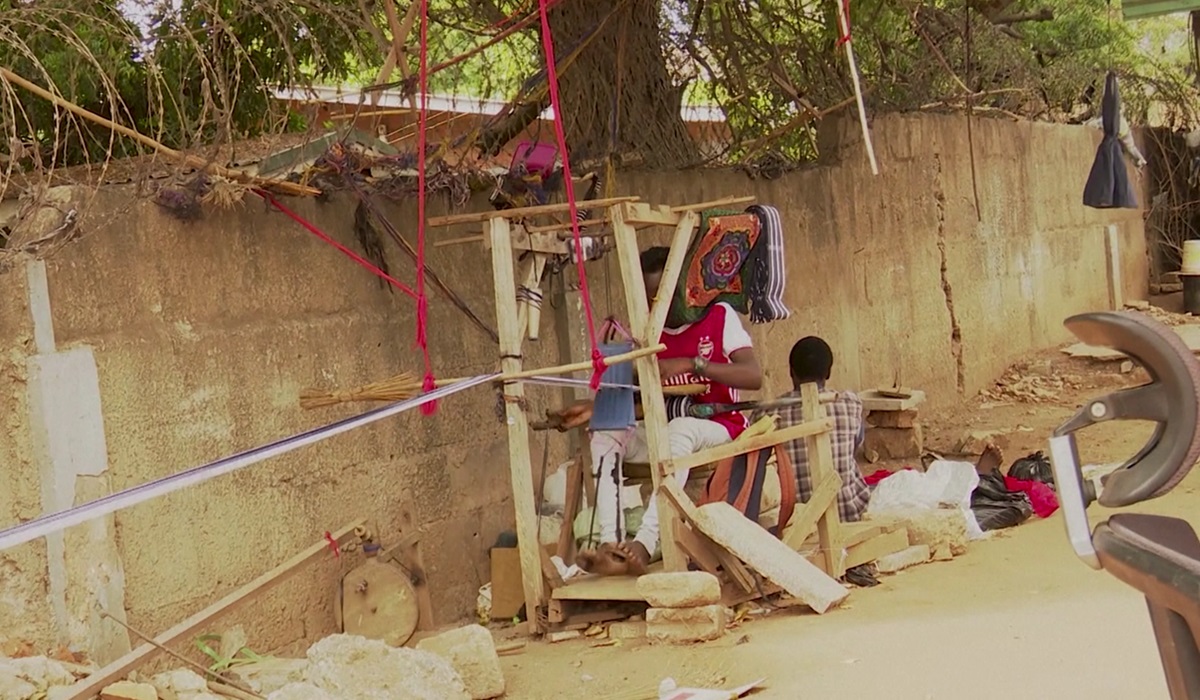In the heart of Ghana, the tradition of hand-woven smocks has been meticulously passed down through generations, creating a vibrant tapestry of cultural heritage. Gabriel Akuliga, a seasoned craftsman with nearly two decades of experience in crafting indigenous Ghanaian smocks, inherited the art from his parents. In a recent interview, he shared his deep connection with the craft, stating, “When I was a young boy, my father always took me along with him to his workshop where he makes the smocks. I observed how he puts the fabrics together and then stitches them. Over time, he taught me all I needed to know about making the smock.”
Once exclusive to chiefs and individuals of high social standing, these handcrafted garments have evolved into everyday wear for Ghanaians. The smock’s versatility suits it for various occasions, from traditional weddings to funerals and celebrations. What was once a status symbol has become a cherished part of Ghanaian culture.
However, the thriving smock industry faces a critical challenge – soaring production costs. The primary culprit behind this predicament is the reliance on imported materials, including yarn, threads, and needles. The collapse of Ghana’s cotton industry, exacerbated by years of mismanagement, has left smock producers grappling with escalating expenses. Gabriel Akuliga expressed his concerns: “It is now very expensive to produce the smocks. We buy the yarn, threads, needles, and everything at a very high cost because they are all imported. So we also have to increase the prices of the smocks.”
This surge in production costs has sent shockwaves through the industry, with smock retailers like Charles Kofi Appiah feeling the impact on sales. A garment that once sold for $30 has now seen its price triple, reaching $100. Understandably, this drastic price increase has made the smocks less accessible to many Ghanaians, leading to a decline in sales.
Charles Kofi Appiah, a smock retailer based in Accra, pointed out the growing discontent among customers: “People like the smock but they complain it is now too expensive. The government has to provide subsidies on the cost of importing the yarns and also support smock producers.” This sentiment is echoed by Gabriel Akuliga, who believes that a waiver on taxes for imported materials could be a crucial lifeline for sustaining his business while preserving the rich cultural heritage embedded in the indigenous Ghanaian smock.
The call for government intervention to support the smock industry is gaining momentum in the face of these challenges. Preserving this traditional craft is a matter of economic sustainability and a commitment to safeguarding Ghana’s cultural identity. As Ghanaians look to the future, there is hope that strategic measures and support from the authorities will ensure the continued flourishing of the hand-woven smock industry, allowing it to weave its way into the fabric of Ghanaian heritage for generations to come.









